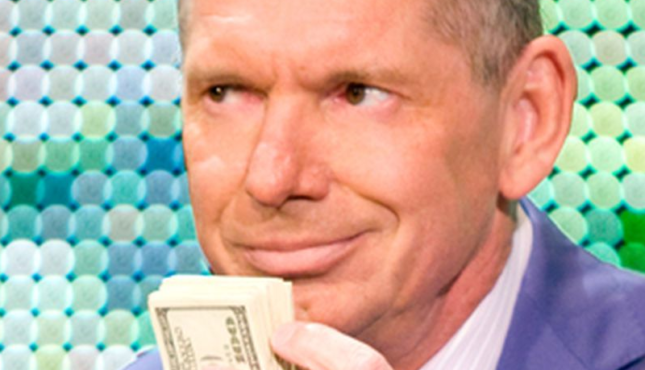wrestling / News
Andrew Yang On Why He Called Out WWE Over Third Party Ban, Why WWE Comparing Their Practices to Disney Is Unfair
 Image Credit: WWE
Image Credit: WWE
Former presidential candidate Andrew Yang drew a lot of attention when he called out WWE for their reported third-party ban on their talent, and discussed his doing so in an interview with Chris Van Vliet. Yang, a lifelong wrestling fan, took to Twitter earlier this month to take WWE to task over the third-party ban and the company’s traditional classification of talent as independent contractors. Yang has discussed why he called out WWE and shot down some of their arguments; you can check out the highlights and full video below:
On what inspired him to call out WWE: “I actually got a message from someone who is part of the WWE, pointing out to me the story about how WWE was saying, ‘Hey, don’t go on Cameo or Twitch.’ And it infuriated me because I know that the WWE has been trying to play it both ways for years, where they’re saying on one hand, ‘Can’t do anything without our say so. We own you, but you’re an independent contractor and we have nothing to do with your health, retirement, any of the benefits you’d get that would accrue to an employee.’
“So to me, you have to make a choice at some point. If you’re going to control all these aspects of a wrestler or performer’s waking life, then you should take some responsibility too for that person[’s] bigger picture. Maybe like, if they have a kid, maybe they get some maternity or paternity leave. Maybe they get an off-season. Maybe they get recovery time.”
On WWE being overly restrictive in their control of talent: “And I say this as someone who’s been a longtime fan of the sport … They’re putting their lives on the line. Or their health on the line, their family life on the line, all the time. They made Vince a billionaire. And then the fact that he’s still being so heavy-handed about their ability to just make a simple buck on Cameo just struck me as so absurd, and ridiculous, and wrong.”
On WWE comparing themselves with Disney as someone just protecting their IP: “I really do not [consider that a fair comparison]. Because there’s no doubt in anyone’s mind that if an actress or performer plays Belle from Beauty and the Beast, [laughs] that is not actually Belle. She does not live in a magic castle with the Beast. So if the actress then turns around and does something of their own accord, everyone knows it’s talent for hire and she’s doing something else. And so with professional wrestlers, you inhabit a character but you’re still a human being. And you still should be able to do things as any human would do, for example, make an appearance. Show up on Cameo.
“It’d be [like] if you, Chris, somehow were in a movie, and then all of a sudden you weren’t allowed to turn around and do anything as yourself. So I think that the comparison is not very apt, in large part because the treatment is so — again, it’s so dissonant. Because on one hand you’re saying, ‘Look, we have no responsibility for you. But on the other hand, we control your very image, your name in some cases, and you can’t do anything without our say so.’ In a way, it’s actual inhuman, it’s de-humanizing. It’s saying, ‘Look, you are no longer a human being. You are this character.'”
On the argument that performers are at fault for signing a contract with those conditions: “The truth of it is that there’s a vastly uneven bargaining table at work where if you’re a performer, and WWE says ‘Hey, here’s this contract. And we’re going to stick a bunch of things in it that you think are unfair or ridiculous, or exploitative.’ At the end of the day, you feel like you have no choice but to sign that deal. Because WWE holds the keys to the kingdom. They are the largest company, they’re the surest means to elevate your career. And there hasn’t been a genuinely competitive market for years. It’s one reason why I like many other fans naturally root for AEW to succeed and create a geniune competitive market so that wrestlers can’t be exploited.
“But the reality is that WWE is a quasi-monopoly. And imagining that these wrestlers, ‘Oh, they know what they got themselves into.’ It’s like, ‘Well, they didn’t really have a genuine chance to negotiate a bargain.'”
If you use any of the quotes in this article, please credit Chris Van Vliet with a h/t to 411mania.com for the transcription.







